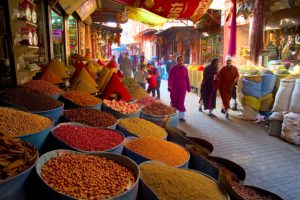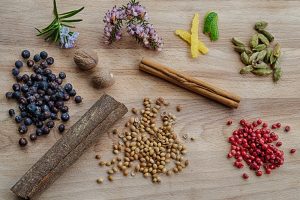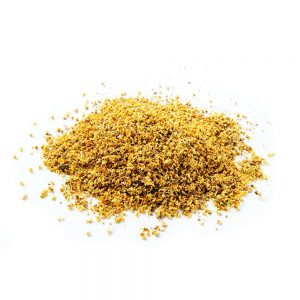Spices bring with them the history and millennia-long fascination of North African bazaars, where even today you can see traders at work to extract the best price; the highlands of Ethiopia, where berberé is dried and coffee grows wild; the expanses of India and Sri Lanka, producers of cassia and cinnamon.
From the emporiums of cities such as Istanbul and Marrakech, thanks to cocktail spices the atmosphere dense with aromas, colors and scents is transported to drinks, in which the bartender's hand must be skilful in dosing millennia-old essences, handed down from age to age from plantations in distant lands.

SPICES IN THE PREPARATION OF DRINKS
Using spices in the preparation of drinks and cocktails thus makes us dream of distant lands. In fact, they have always been used for this purpose; just think of Alpestre and Chartreuse, gin and vermouths, as well as traditional Italian bitter liqueurs such as Fernet and Campari.
Today, spices are exploited to enrich the preparation of drinks with fine flavors and aromas. A few examples? Hibiscus can be used to make a soda with a sour taste and intense color; tonka bean and nutmeg can be grated directly onto drinks; mallow and lavender flowers and rosebuds are delicate decorations, while mint, verbena and eucalyptus are suitable for making aromatic alcoholic infusions; we conclude this roundup with cinnamon, a light smokiness of which can give an extra kick to Negroni, for example.
Each spice thus requires both a certain pairing and a certain use-some should be steeped, some pounded, some grated-so as not to fall into unbalanced or imperceptible pairings.

TYPES OF SPICES.
Spices can be divided into a number of subcategories: citrus; barks; flowers; leaves; roots/rhizomes; seeds, berries and fruits; and bitter spices.
For each subcategory you will find indicated the best-known spices used in cocktail preparation.
AGRUMES
Bitter Orange and Lime: suggested uses: cordial, home made bitters.
Sweet Orange and Mandarin: cordial, citrus bitters.
Bergamot: aromatic bitters, alcoholic tinctures, sodas and syrups.
CORTECCE
Cinnamon: tips for use: powdered directly on the drink.
China: for fortifying wines or creating home-made liqueurs and bitters.
FLOWERS
Absinthe: tips for use: to fortify wines or create home-made bitters.
Rosebuds: can be a decoration, also great for giving floral notes to cocktails.
Cloves: needed in falernum.
Jasmine: sodas, home-made liqueurs, flavored honey mix.
Hibiscus: sodas, syrups, shrub (acid part).
Lavender: tinctures, syrups, decorations.
Hops: bitter and aromatic base of bitters.
Elderberry: sodas, liqueurs, syrups.

LEAVES
Eucalyptus: recommendations for use: all preparations, as the tincture is balsamic and refreshing.
Peppermint and Mint Viridis: tinctures, syrups, home-made bitters.
White tea: sodas, syrups.
Green tea: sodas, infusions and syrups.
Verbena odorosa: tinctures, home-made liqueurs.
ROOTS/RIZOMS.
Aromatic calamus: tips for use: excellent in bitters because it is bitter and aromatic.
Gentian: bitters, home-made bitter liqueurs.
Hulled licorice: tinctures, syrups, home-made bitters.
Rhubarb: bitter liqueurs, home-made bitters.
SEEDS, BERRIES AND FRUITS
Star anise: tips for use: great as a tincture and decoration. Also for sodas, syrups or flavored honey mixes.
Cardamom: in falernum combined with ginger and cloves.
Tonka bean: grated over drinks.
Juniper: for liqueurs, tinctures and spirits for flavoring.
White Pepper, Black Pepper, Pink Pepper and Green Pepper: ground directly on bitters, syrups, cocktails.
Allspice: suitable black tiki or for making a home-made pimento dram.
BITTER SPICES.
Finally, these are Bitter Orange, Wormwood, China, Gentian, Hops and Rhubarb: strongly aromatic and bitter-tasting and therefore necessary for making bitter liqueurs and home-made bitters.

